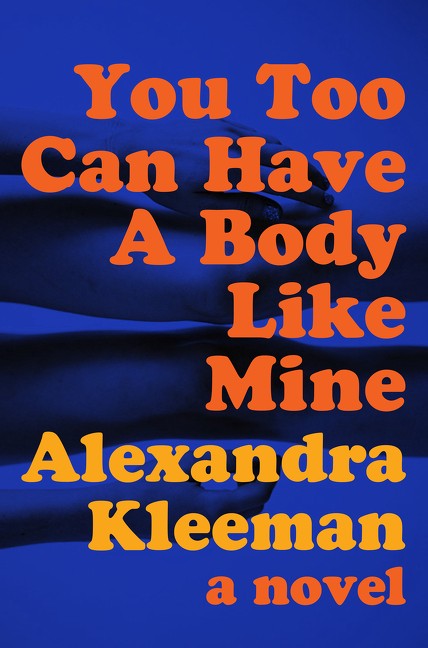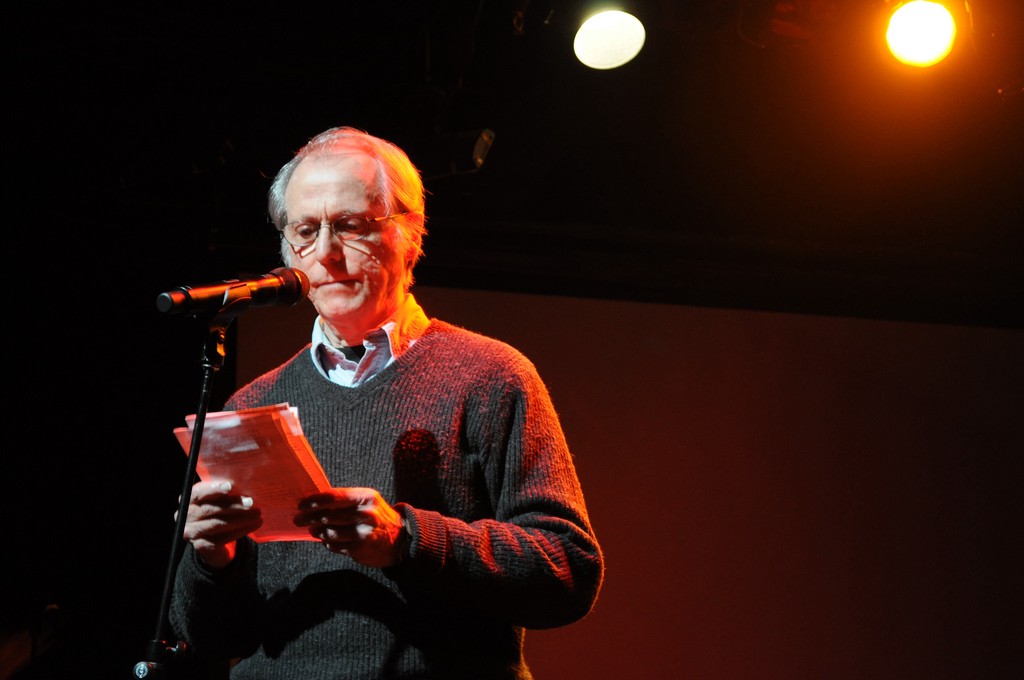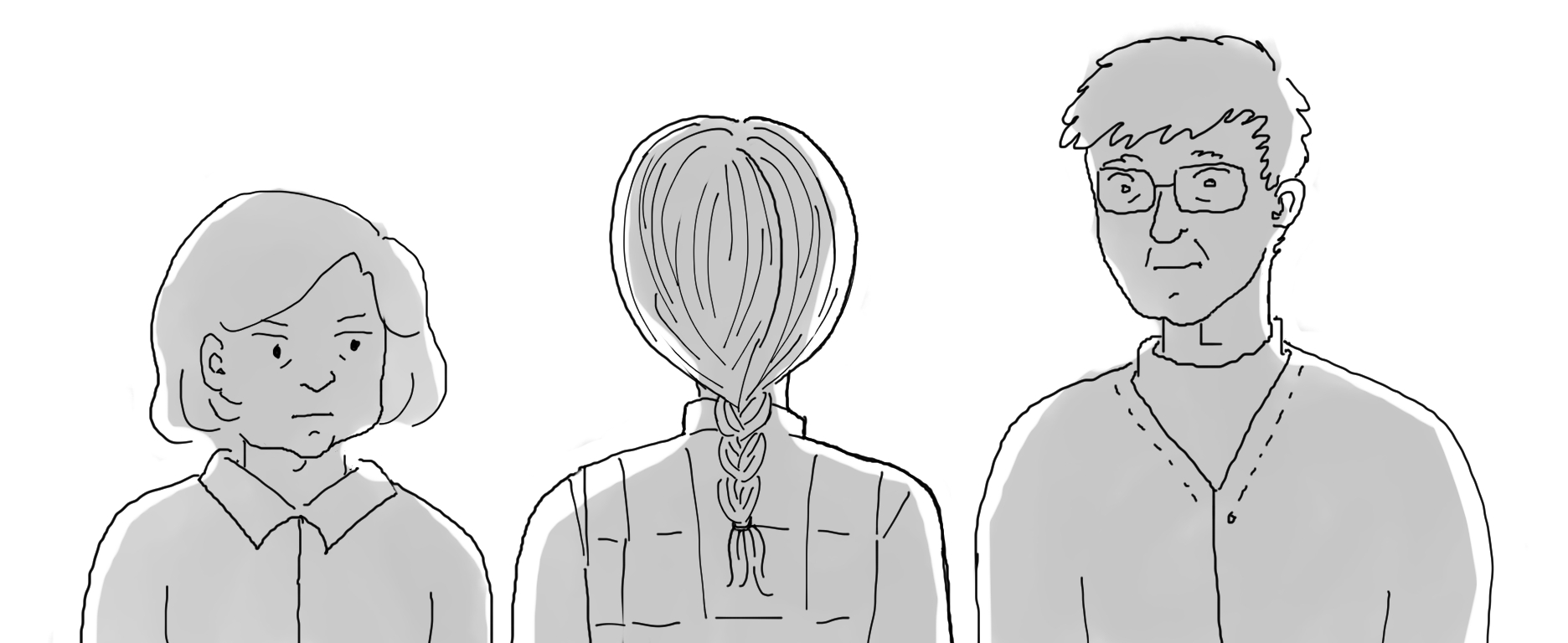essays
CELEBRITY BOOK REVIEW: Jim Perdue on “You Too Can Have a Body Like Mine” by Alexandra Kleeman

Editor’s note: Any resemblances to actual celebrities — alive or dead — are miraculously coincidental. Celebrity voices channeled by Courtney Maum.

Unlike my father and his father before him, I did not grow up wanting to be a poultry tycoon. In fact, I wanted to be an acquaculturist — I have my PhD in fisheries. An acquaculturist is someone who helps manage freshwater and marine resources for human consumption. It’s not so different, though, me falling into chicken. Our chicken is mostly water, anyhow.
It was my grandfather, actually, who instilled me with a love of books. Quality, Integrity, Trust, Teamwork, and — incongruously — Poetry. That was my value diet, growing up. Lord knows I don’t get a lot of time to read now, but when I do, I like the things that disagree with the image of the hardworking everyman that I project in our commercials. I like my fiction hard and strange and gamey. I’ve never been allowed to say so, but when it comes to poultry, I go in for duck.
You Too Can Have a Body Like Mine by Alexandra Kleeman is my latest read. I had to take off the dust jacket when I was in bed reading it because my wife kept poking me in the place above my boxer band that she calls my “gizzards” and laughing about the title. Well, yes. A lot of middle-aged white men do in fact have a body just like mine. And a face like mine as well. That’s why I was pushed into our company’s commercials. Because people can relate to the memories of my father that I harbor in my face.
Do you remember my father, Frank Perdue? The tough man who made a very tender chicken? Wrinkled forehead, bald headed, a nose like a beak? My face, they say, has authenticity, because it refers to his. Quality, integrity, trust. After a film crew secretly shared images of the conditions some of our birds were living in, the marketing heads told me that if consumers couldn’t trust our chicken anymore, they’d have to trust my mug.
You Too Can Have a Body Like Mine is about such interchangeability. Of faces. Bodies. Lives. In one scene, the protagonist, A, wanders into a supermarket that only sells plastic food. Even the blood under the chicken cutlets is fabricated: pink, gelatinous, plastic poultry goo. A presses it and pokes it while a Wallyhead (the name of the headdress that masks the employees of the Wally chain of supermarkets) blinks and talks at her through a cavernous mesh mouth.
I know about mesh mouths. I have an entire department of them yattering at me daily about our bottom line. In order to keep up with American’s new delusions of health, we’ve had all our packaging reprinted to boast that our products are now 100% hand-trimmed and 99% fat free. Which means…nothing. And by nothing, I mean the kind of nihilistic darkness that loiters behind a Wallyhead’s mouth.
In this, Kleeman’s first novel, A is encouraged to believe that her psychosomatic redemption will be delivered to her only upon the consumption of an inhuman amount of Kandy Kakes: Hostess cake-like concoctions made of “chemicals, flour, aspartame, and some food-grade plastic.” The Kandy Kakes are made of the same spirals of nothing as our promises of protein that is boneless and fat-free.
Look closer behind the commercial in which I am driving with a denim shirt on, my watch and wedding ring in clear focus, a slideshow of nondescript “barns” and “fences” passing by the open window of the truck they rented for the shoot. I haven’t been inside a truck since I was a toddler. I don’t live in a barn. I live in a townhouse in Salisbury, Maryland. I like boardwalks and beach sand. My favorite word is “estuary.” Just like A becomes ensconced in the disassociation that plagues our modern bodies, I, too, show up day after day for a life that isn’t really mine.
In this novel, there’s a game show called “That’s My Partner!” that A’s boyfriend wants them to sign up for. It’s a twisted version of The Dating Game in which a contestant is asked to show how well he knows his partner through an increasingly bizarre series of tests, including one in which he goes into a cave filled with naked people who have been physically prepped to resemble the contestant’s lover. Whomever he drags out of that cave is the person he has to leave the show with. No ifs, ands, or buts. That is pretty much how I got this CEO gig: Daddy pulled me away from my books on marine parasites, said I was third generation Perdue and that, my friends, was that. This company, like the country it tries to stand for, is navel-gazing. Blind. Before I signed the papers accepting the job I couldn’t turn down, I pointed out to my father that in French, “perdue” means lost. Why should an American, he asked me, give a rat’s tail about the French? He wasn’t wrong, entirely. Because of the growth hormones, the French don’t want our chicken, anyhow.
And yet. And yet! Despite the fact that we have a ten, a twenty, and a thirty-year business plan, lost is exactly how I feel when I’m standing in the supermarket looking at container after container of our yellow meat. Lost is how I feel in the morning when I’m buttoning the shirts that have been chosen for me by the public relationship department because of their “down home feel.” And lost is how A feels within the narrow confines of her life.
Of her closest friend and roommate, A says, “B was the sort of person who might be anywhere.” This roommate invests all of her time and most of her money into buying personal care products to make her look even more like A than A herself. At one point, in a cumulative effort at this doppelganging, B cuts her hair off to more resemble A’s, intertwines the fallen tresses and gives A the braid. A, spiraling and starving, stuffs her throat with it.
This novel is about as easy to get through as a chicken covered with feathers, but it is worth finding your way through it to the book’s nutritious heart. Those that persevere will meet a cast of characters who are violently lethargic, living in a world that is soft and overlit. A’s boyfriend, C, is a sometimes graphic designer who lives on canned food, porn, and Shark Week, an insipid and soft person with “hands loose and docile as flowers.” B is an anorexic who subsists on orange popsicles and spends her free time trying to make herself look exactly like her roommate by using the exact same personal care products as A. Like a nightmarish early-twenties version of the Peanuts comic strips, there aren’t any parents in the book. There aren’t any old people anywhere, and the neighbors that used to live across the street from A and B have covered themselves with sheets with holes for eyes and “ghosted” themselves away.
Although the boyfriend C seems to be thriving sexually and intellectually in a world near catatonic with monotony, A is flailing. She wants something more but because she doesn’t know what this more looks or tastes like, she loses hope…and weight.
You Too Can Have a Body Like Mine shows us what it feels like to want what you are told to want, and not be able to keep up the stamina needed to maintain a false desire. It shows us a world in which we gleefully eat affordable food chemicals that make us look more and more like everyone else and less like ourselves. I know, maybe better than anyone, the pleasant effect that such manufactured food can bring to brain and mouth. Pinkish beige and numbly cooling, pushing our anxieties to a place devoid of sound.
Many people will not be able to persevere through the book’s opaqueness, but those who do will perhaps relate, as I did, to its suggestion that homogenization has left us starving for a life packed full of fat, and fruit, and skin, and bones again.








